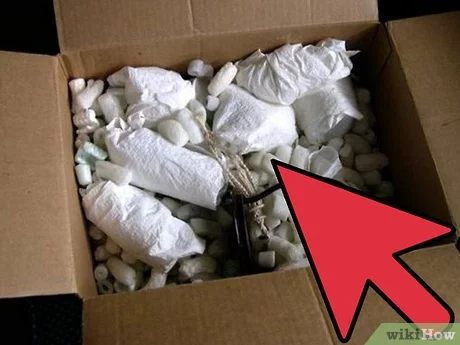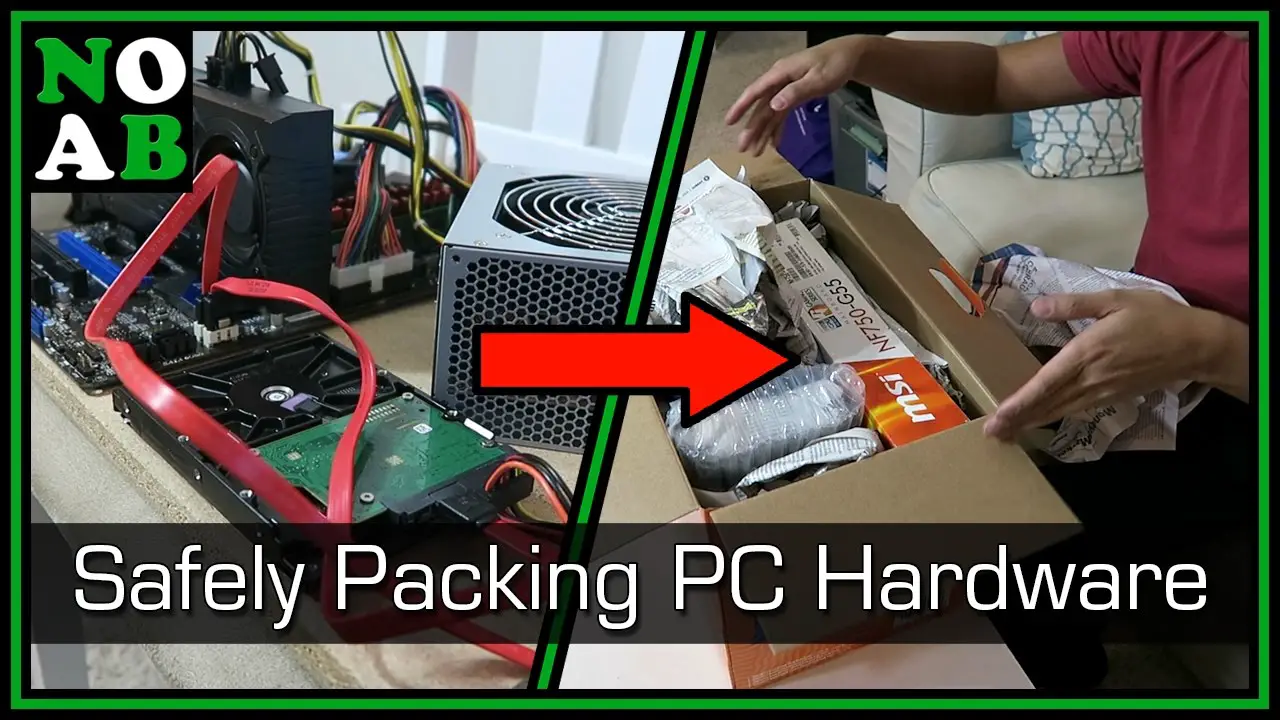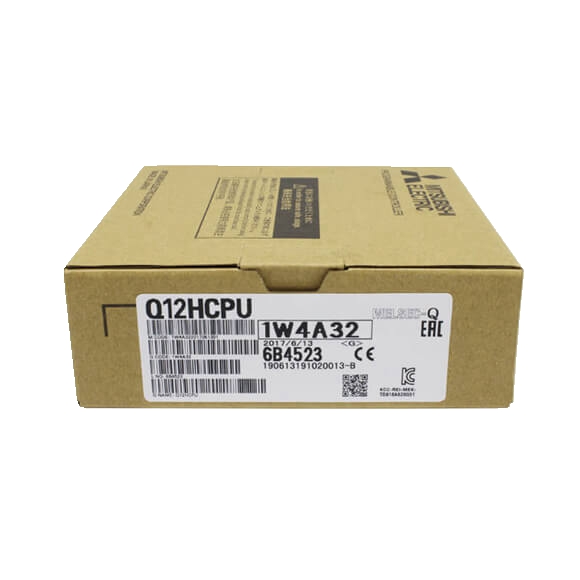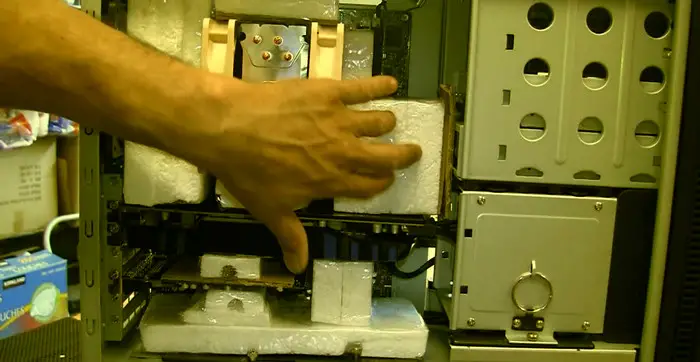Are you planning to ship a CPU? Whether you are selling a used CPU or sending it for repairs, shipping a CPU requires proper preparation and packaging to ensure that it arrives safely and undamaged.
In this article, we will guide you through the process of shipping a CPU step by step, from preparing the CPU for shipping to receiving and handling the delivered package. So, let’s get started!
Contents
- Preparing the CPU for Shipping
- Choosing the Right Packaging Materials
- Properly Securing the CPU in the Box
- Labeling and Addressing the Package
- Selecting a Shipping Carrier
- Understanding Shipping Restrictions for CPUs
- Calculating Shipping Costs
- Insuring Your Shipment
- Tracking Your Shipment
- Receiving and Handling the Delivered CPU
- Video
- Conclusion
Preparing the CPU for Shipping

Before you can ship a CPU, there are a few important steps you need to take to ensure that it arrives safely and undamaged.
Gather the Necessary Materials
The first step in preparing a CPU for shipping is to gather all the necessary materials. Here’s what you will need:
- A sturdy cardboard box
- Anti-static bubble wrap or foam
- Packing tape
- Label printer
Make sure to use a sturdy cardboard box that is slightly larger than the CPU to provide adequate cushioning. Avoid using boxes that are too large or too small, as this can increase the risk of damage during shipping.
Power Down the CPU
If the CPU is still in a computer, turn off the computer and unplug it from the power source. This will prevent any potential damage to the CPU during shipping.
Remove the CPU from the Computer
To remove the CPU from the computer, you will typically need to open the computer case and carefully remove the CPU from the motherboard. Make sure to handle the CPU with care and avoid touching its delicate components.
Wrap the CPU in Anti-Static Bubble Wrap or Foam
Once the CPU is removed from the computer, it is essential to protect it from electrostatic discharge (ESD), which can damage its delicate components. Wrap the CPU in anti-static bubble wrap or foam to provide an extra layer of protection.
Place the Wrapped CPU in the Cardboard Box
After wrapping the CPU, place it in the cardboard box. Make sure the box is large enough to fit the CPU without any room to move around. This will prevent the CPU from shifting during transit, reducing the risk of damage.
Choosing the Right Packaging Materials

The type of packaging materials you use is essential for protecting the CPU during shipping. Here are some specific recommendations:
Cardboard Box
As mentioned earlier, a sturdy cardboard box is crucial for shipping a CPU safely. It should be slightly larger than the CPU to provide adequate cushioning. You can also use a double-walled box for extra protection.
Anti-Static Bubble Wrap or Foam
Anti-static bubble wrap or foam is essential for protecting the CPU from ESD. Look for bubble wrap or foam that is specifically labeled as anti-static or ESD-safe. Avoid using regular bubble wrap or foam, as they can generate static electricity and damage the CPU.
Packing Tape
Use high-quality packing tape to seal the box securely. Make sure to reinforce all seams and corners to prevent the box from opening during transit.
Properly Securing the CPU in the Box

Properly securing the CPU in the box is crucial to prevent any movement during transit. Here’s how you can do it:
- Place the wrapped CPU in the center of the box.
- Fill any empty spaces with crumpled paper or packing peanuts to prevent the CPU from moving around.
- Close the box and shake it gently to ensure that the CPU is properly secured.
You can also use air pillows or foam inserts for added protection.
Labeling and Addressing the Package

Proper labeling and addressing of the package are essential to ensure that it reaches its destination without any delays or issues. Here’s what you need to do:
- Use a label printer to print out a clear and legible label with the recipient’s address and contact information.
- Include your return address on the label as well.
- Place the label on the top of the box, making sure it is not covered by any tape or packaging material.
Selecting a Shipping Carrier
Choosing the right shipping carrier is crucial for ensuring that your CPU arrives safely and on time. Here are some factors to consider when selecting a shipping carrier:
- Speed: If you need to ship the CPU urgently, choose a carrier that offers expedited shipping services.
- Tracking: Make sure to select a carrier that provides tracking information so that you can monitor the progress of your shipment.
- Insurance: Consider choosing a carrier that offers insurance for your package in case of any damage or loss during transit.
- Reputation: Do some research on different carriers and read reviews to ensure that you select a reliable and trustworthy one.
Understanding Shipping Restrictions for CPUs
Before shipping a CPU, it is essential to understand the shipping restrictions and regulations for this type of item. Some countries may have specific restrictions on importing CPUs, and it is crucial to comply with these regulations to avoid any delays or issues with your shipment.
For example, some countries may require you to obtain an export license before shipping a CPU. It is always best to check with the customs department of the destination country to ensure that you comply with all the necessary regulations.
Calculating Shipping Costs
Shipping costs can vary depending on the size, weight, and destination of your package. To calculate the shipping costs for your CPU, you can use online shipping calculators provided by most shipping carriers. These calculators take into account the dimensions and weight of your package and provide you with an estimated cost for shipping.
You can also contact different carriers and compare their prices to find the most cost-effective option for your shipment.
Insuring Your Shipment
While shipping carriers provide some level of liability coverage for lost or damaged packages, it may not be enough to cover the full value of your CPU. Therefore, it is always a good idea to purchase additional insurance for your shipment.
Most shipping carriers offer insurance options that you can add to your package at an additional cost. Make sure to read the terms and conditions of the insurance policy carefully to understand what is covered and what is not.
Tracking Your Shipment
Once your CPU is shipped, make sure to track its progress using the tracking number provided by the shipping carrier. This will allow you to monitor its journey and ensure that it reaches its destination on time. In case of any delays or issues, you can contact the carrier and take appropriate action.
Receiving and Handling the Delivered CPU
When your CPU is delivered, make sure to inspect the package for any signs of damage before accepting it. If there are any visible damages, take photos and document them. You can then file a claim with the shipping carrier and seek compensation for the damages.
After receiving the package, handle the CPU with care and avoid dropping or mishandling it. If you are sending the CPU for repairs, make sure to follow the instructions provided by the repair center for proper handling and packaging.
Video
Conclusion
Shipping a CPU may seem like a daunting task, but with proper preparation and packaging, you can ensure that it arrives safely and undamaged. Remember to gather all the necessary materials, choose the right packaging materials, secure the CPU properly in the box, and label and address the package correctly. Also, make sure to select a reliable shipping carrier, understand shipping restrictions, calculate shipping costs, and insure your shipment for added protection. By following these steps, you can ship a CPU with confidence and peace of mind.

Information Security Asia is the go-to website for the latest cybersecurity and tech news in various sectors. Our expert writers provide insights and analysis that you can trust, so you can stay ahead of the curve and protect your business. Whether you are a small business, an enterprise or even a government agency, we have the latest updates and advice for all aspects of cybersecurity.

